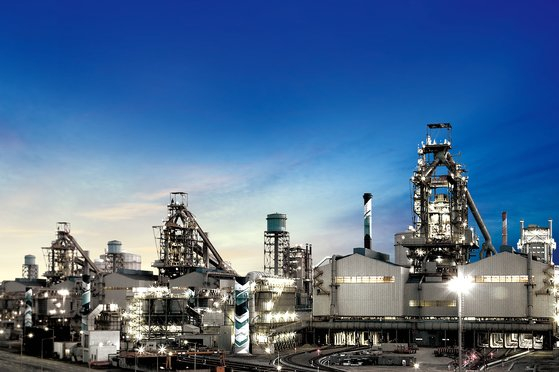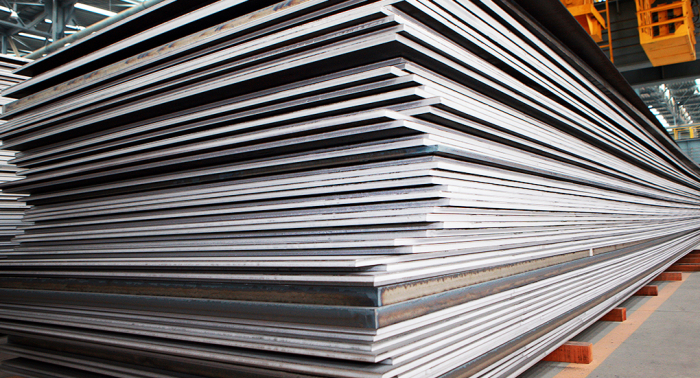Steel
KoreaŌĆÖs steel stocks make big rebound with rosy H2 outlook
Analysts say that Korean steelmakersŌĆÖ profitability will depend on whether China will cut steel output this year
By Jul 28, 2021 (Gmt+09:00)
3
Min read
Most Read
Samsung shifts to emergency mode with 6-day work week for executives


S.Korea's LS Materials set to boost earnings ahead of IPO process


HYBE to fire NewJeans agency CEO; Min refutes accusation


Alibaba eyes 1st investment in Korean e-commerce platform


Louis Vuitton, Chanel, Dior post weak profits in Korea post-pandemic



The share prices of South KoreaŌĆÖs major steelmakers, which observed a period of a downturn over the last two months, is making a rebound amid growing expectations for strong second-half earnings.
Over the last 10 years, the global steel industry had been characterized by oversupply and intense competition. The stock prices of the major industry players dropped gradually over the last decade until the start of this year, when the global demand for steel started to skyrocket due to multiple signs of economic recovery in different parts of the world.
Thanks to the unprecedented growth in demand, South KoreaŌĆÖs two leading steel companies POSCO and Hyundai Steel Co. enjoyed their share prices rise respectively by 61.9% and 53.6% in the period between February 2020 and May 2021. The sustained share price growth until May had reflected in advance the positive earnings outlook for the second quarter of this year.
Matching the investor expectations, POSCO for the first time reported more than 2.2 trillion won ($1.9 billion) in quarterly operating profit, whereas Hyundai Steel also posted its highest quarterly profit of 545 billion won ($472 million) in the second quarter. ┬Ā
However, with the Chinese governmentŌĆÖs recent move to control the price of raw materials, the price of steel also started to drop, also driving down the share prices. Hyundai SteelŌĆÖs stock price, which recorded 60,600 won ($52.44) in mid-May, had dropped sharply to 49,600 won ($42.92) by July 21.
The share prices of the two companies have started to rebound from last week, with POSCOŌĆÖs share price closing at 364,500 won ($315.63) and Hyundai SteelŌĆÖs closing at 53,400 won ($46.24). Industry watchers say that the investors have started to regain confidence in the steel stocks for the upcoming third quarter, with POSCO and Hyundai Steel planning to raise the prices of their products.
POSCO, which raised the average price of its steel products by 140,000 won ($121.24) per ton in the second quarter, is expected to further raise the price in the third quarter. The company also raised the price of the hot-rolled steel sheets by 100,000 won ($86.60) per ton this month.
ŌĆ£POSCO has already closed price negotiations with the home appliance makers and is currently in talks with the shipbuilding and auto industries. As the companyŌĆÖs average unit price will likely be raised further by 140,000 won within the third quarter, POSCO will continue to post record-high earnings,ŌĆØ said Cape Investment & Securities analyst Kim Mi-song.
Hyundai Steel is also expected to additionally raise the prices of its steel plates supplied to the auto and shipbuilding industries within the second half.

ŌĆ£With the price of iron ore on the rise and more seasonal demand kicking in, Hyundai Steel will be able to raise the prices in the second half,ŌĆØ said NH Securities analyst Byun Jong-man.
Analysts highlight that the share prices of KoreaŌĆÖs steelmakers will depend on whether China will decide to cut its steel output. The Chinese government, which recently announced to cut its carbon emissions significantly by 2035, has been pressuring the countryŌĆÖs steel industry, the highest carbon emitter, to reduce production.
ŌĆ£The Chinese government is likely to implement relevant policies in the second half to cut the countryŌĆÖs steel output. The speed and the degree of the reduction will determine how much the Korean steel companies will benefit,ŌĆØ said BNK Securities analyst Kim Hyun-tae.
Write to Sung-mi Shim at smshim@hankyung.com
Daniel Cho edited this article.
More to Read
-
 IPOHyundai SamhoŌĆÖs IPO faces hurdle on steel prices, baffling IMM PE
IPOHyundai SamhoŌĆÖs IPO faces hurdle on steel prices, baffling IMM PEJul 27, 2021 (Gmt+09:00)
3 Min read -
 Hydrogen economyPOSCO, Doosan join hands on ammonia-fueled gas turbines
Hydrogen economyPOSCO, Doosan join hands on ammonia-fueled gas turbinesJul 19, 2021 (Gmt+09:00)
1 Min read -
 EarningsPOSCO returns from pandemic blues with record quarterly profit
EarningsPOSCO returns from pandemic blues with record quarterly profitJul 09, 2021 (Gmt+09:00)
3 Min read -
 Scrap metal scarcityChinaŌĆÖs heavy imports of copper, steel scrap hurt Korean SMEs
Scrap metal scarcityChinaŌĆÖs heavy imports of copper, steel scrap hurt Korean SMEsMay 26, 2021 (Gmt+09:00)
2 Min read
Comment 0
LOG IN


